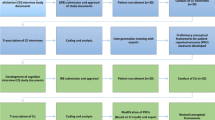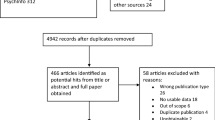Abstract
Although psycholosocial aspects of skin diseases are well known, disease-specific questionnaires validated for use in clinical trials are not available to assess the impact of facial acne on health-related quality of life or to evaluate therapeutic change. Development of such an instrument was undertaken and included item generation, reduction and pilottesting phases. By interviewing acne subjects and dermatologists and literature review, 168 possible items were identified. Next, 165 acne subjects identified which items affected them and rated importance on a 5-point scale. Reduction to a brief questionnaire was performed by evaluating patient-perceived importance and factor analysis; four domains were identified (self-perception, roleemotional, role-social, acne symptoms). After pilot-testing for comprehension in acne subjects, further revisions were made to improve clarity and applicability. The resulting instrument takes 10 minutes to complete, and consists of 24 questions assessing how acne affected certain aspects of patients' lives during the past week on a 7-point scale. Thus, an instrument with excellent content validity was developed to assess health-related quality of life in patients with facial acne, and is comprised of statistically meaningful items of importance to patients. Other measurement characteristics are being assessed in a recently initiated study to evaluate test-retest reliability and responsiveness to therapy.
Similar content being viewed by others
References
Bergfield W. (program chair) New Perspectives on Acne, Clinician, Cleveland Clinic Foundation.
Koo J. The psychosocial impact of acne: Patients' perceptions. J Am Acad Dermatol 1994; 32: S26-S30.
Albers HJ. Psychological dilemma and management of the acne patient. In: Cullen SI, ed. Royal Society of Medicine Services International Congress and Symposium Series No. 95, 1985.
Gupta MA. Psychosocial correlates of acne vulgaris. Dermatol Q, 1989; Fall: 1–3.
Jowett S, Ryan T. Skin disease and handicap: an analysis of the impact of skin conditions. Soc Sci Med 1985; 20(4): 425–429.
Salek MS. Measuring the quality of life of patients with skin disease. In: Quality of Life Assessment: Key Issues in the 1990s. Walker SR, Rosser RM, eds. Dordrecht, The Netherlands: Kluwer Academic Publishers, 1993: 355–370.
Krowchuk DP, Stancin T, Keskinen R, Walker R, Bass J, Anglin TM. The psychosocial effects of acne on adolescents. Pediatric Dermatology 1991; 4(4): 332–338.
Rubinow DR, Peck GL, Squillace KM, Gantt GG. Reduced anxiety and depression in cystic acne patients after successful treatment with oral isotretinoin. J Amer Acad Dermatol 1987; 17(1): 25–32.
Cunliffe WJ. Acne and unemployment. Br J Dermatol 1986; 115: 286.
Simpson N. Effect of isotretinoin on quality of life in patients with acne. PharmacoEconomics 1994; 6(2): 108–113.
Chee-Chong, Lim L, Tan T-C. Personality, disability and acne in college students. Clin Exper Derm 1991; 16(5): 371–373.
Van der Meeren HL, et al. The psychological impact of severe acne. Cutis 1985; 36: 84–86.
Motley RJ, Finlay AY. How much disability is caused by acne? Clin Exper Derm 1989; 14: 194–198.
Gill TM, Feinstein AR. A critical appraisal of the quality of life measurements. JAMA 1994; 272: 619–626.
Spilker B. Quality of Life Assessments in Clinical Trials. New York: Raven Press, 1990;
Guyatt GH, Feeney DH, Patrick DL. Measuring health-related quality of life. Ann Int Med 1993; 118: 622–629.
Patrick DL, Deyo RA. Generic and disease-specific measures in assessing health status and quality of life. Med Care 1989; 27 (Suppl): S217-S231.
Juniper EF, Guyatt GH, Epstein RS, Ferrie PJ, Jaeschke R, Hiller TK. Evaluation of impairment of health-related quality of life in asthma: development of a questionnaire for use in clinical trials. Thorax 1992; 47(2): 76–83.
Hartmaier SL, Santanello NC, Epstein RS, Silberstein SD. Development of a brief 24-hour migraine-specific quality of life questionnaire. Headache 1995; 35: 320–329.
Pochi PE, Shalita AR, Strauss JS, Webster SB. (Planning Committee Members). Report of the Consensus Conference on Acne Classification. J Amer Acad Dermatol 1991; 24(3): 1–6.
Motley RJ, Finlay AY. Practical use of a disability index in the routine management of acne. Clin Exper Dermatol 1992; 17(1): 1–3.
Rauch PK, Jellinek MS. Pediatric dermatology: development and psychological issues. Adv Dermatol 1989; 4: 143–158.
Koo JYM, Smith LL. Psychologic aspects of acne. Pediatric Dermatol 1991; 8(3): 185–188.
Wu SF, et al. Role of anxiety and anger in acne patients; a relationship with the severity of disease. J Am Acad Dermatol 1988; 18(2): 325–332.
Myhill JE, Leichtman SR, Burnett JE. Self-esteem and social assertiveness in patients receiving isotretinoin treatment for cystic acne. CUTIS 1988; 41: 171–173.
Medansky RS, Handler RM, Medansky DL. Self-evaluation of acne and emotion: A pilot study. Psychometrics 1981; 5: 379–383.
Sainsbury P. Psychosomatic disorders and neurosis in outpatients attending a general hospital. J Psychosomatic Res 1962; 4: 261–273.
Lucas CJ. Personality of students with acne vulgaris. Br Med J 1961; 2: 354–356.
Kenyon FE. A psychiatric survey of a random sample of out-patients attending a dermatological hospital. J Psychosom Res 1962; 6: 129–35.
Wilson IB, Cleary PD. Linking clinical variables with health-related quality of life: a conceptual model of patient outcomes. JAMA 1995; 273: 59–65.
Author information
Authors and Affiliations
Rights and permissions
About this article
Cite this article
Girman, C.J., Hartmaier, S., Thiboutot, D. et al. Evaluating health-related quality of life in patients with facial acne: development of a self-administered questionnaire for clinical trials. Qual Life Res 5, 481–490 (1996). https://doi.org/10.1007/BF00540020
Received:
Accepted:
Issue Date:
DOI: https://doi.org/10.1007/BF00540020




